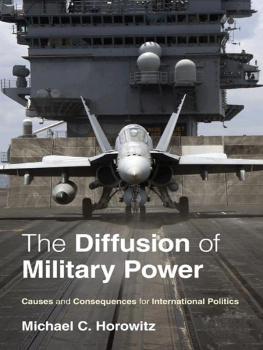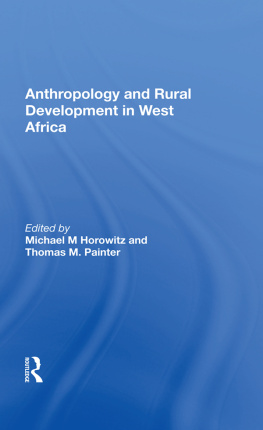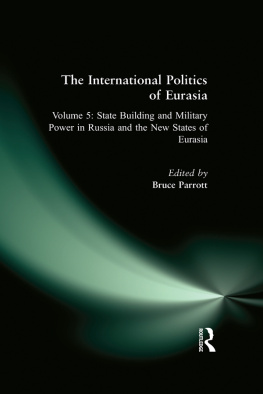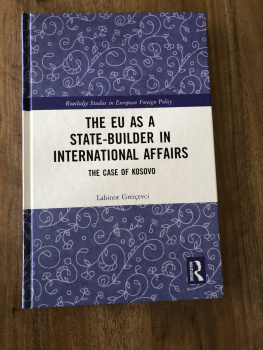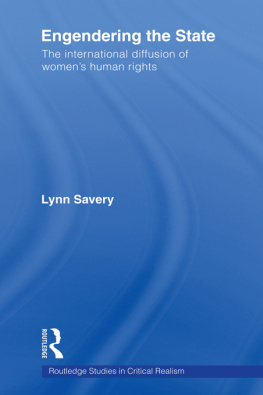2010 Princeton University Press
Published by Princeton University Press, 41 William Street, Princeton, New Jersey 08540
In the United Kingdom: Princeton University Press, 6 Oxford Street, Woodstock, Oxfordshire
OX20 1TW
All Rights Reserved
Library of Congress Cataloging-in-Publication Data
Horowitz, Michael, 1978
The diffusion of military power: causes and consequences for international politics / Michael C. Horowitz.
p. cm.
Includes bibliographical references and index.
ISBN 978-0-691-14395-8 (hardcover: alk. paper)ISBN 978-0-691-14396-5 (pbk.: alk. paper) 1. Military art and scienceTechnological innovationsHistory. 2. Military art and scienceTechnological innovationsPolitical aspects. 3. Military art and scienceTechnological innovationsEconomic aspects. 4. Balance of power. 5. International relations. 6. Military policy. I. Title.
U42.H67 2010
355.07dc22 2009043474
British Library Cataloging-in-Publication Data is available
This book has been composed in Adobe Caslon Pro
Printed on acid-free paper.
press.princeton.edu
Printed in the United States of America
1 3 5 7 9 10 8 6 4 2
PREFACE
This book examines the spread of military power throughout the international system, explaining how variations in the diffusion of new military innovations influence international politics, especially the balance of power and warfare. States have a number of possible strategic choices when faced with military innovations, including adoption, off setting or countering, forming alliances, and shifting toward neutrality. My theory, named adoption-capacity theory, argues that for any given innovation, the financial resources and organizational changes required for adoption govern the system-level distribution of responses and influence the choices of individual states.
As the cost per unit of the technological components of a military innovation increases and fewer commercial applications exist, the rate of adoption decreases and alternatives like forming alliances become more attractive. Similarly, if implementing an innovation requires large-scale organizational changes in recruitment, training, and war-fighting doctrine, fewer actors are likely to adopt it. While higher financial requirements generally mean adoption patterns will benefit preexisting wealthy and powerful states, however, higher organizational change requirements can handicap the wealthiest states, and upset the balance of power toward smaller and more nimble actors.
Using multiple methods ranging from large-n statistical tests to the in-depth analysis of primary sources, I test the theory on four cases: nuclear weapons, battlefleet warfare, carrier warfare, and suicide bombing. The results strongly support the theory, and the suicide-bombing case demonstrates its conceptual reach beyond state military organizations to explain a key trend in international politics. This chapter views suicide bombing as an innovation, and discusses how financial and organizational constraints influence terrorist groups decisions. For example, the high organizational change requirements for adoption explain why older, previously successful terrorist groups like the Provisional Irish Republican Army (PIRA) and the Basque Fatherland and Freedom Group (ETA) did not adopt suicide terrorism, but Al Qaeda did. The conclusion moves forward and examines the way potential information age shifts in the production of military power could influence the future of the international security environment for both state and nonstate actors, including the United States, China, and Al Qaeda.
I have been fortunate to receive tremendous support at every step along the way in the long process of writing this book, incurring a great number of intellectual debts. While any errors in this work are most certainly mine and mine alone, there would definitely have been many more without the help of a great number of people.
I was privileged to work with an exceptional group of senior scholars while in graduate school, including Stephen P. Rosen, Alaistar Iain Johnston, and Allan Stam. Each made a vital contribution to the ideas and arguments in this book. I would also like to thank some of the many other people who took time out of their own research to read and comment on pieces of my manuscriptor the whole thing in some cases: Nikolaos Biziouras, Bear Braumoeller, Jeff Frieden, Michael Glosny, Stephanie Kaplan, Andy Kennedy, Andy Kydd, Paul MacDonald, Manjari Miller, Assaf Moghadam, Phil Potter, Daryl Press, Sebastian Rosato, John Schussler, Beth Simmons, Erin Simpson, Robert Traeger, Steve Walt, and Catharina Wrede-Braden.
Financial support from the Government Department at Harvard University, the Weatherhead Center for International Affairs, the Olin Institute for Strategic Studies, and the Belfer Center for Science and International Affairs gave me the time and opportunity to complete the early stages of my research. Steve Bloomfield in particular helped make the Weatherhead Center a welcoming and fun place to work, as did Ann Townes at the Olin Institute and Susan Lynch at the Belfer Center.
I have benefited from an extremely supportive group of colleagues since I arrived at the University of Pennsylvania in fall 2007, especially Avery Goldstein and Ed Mansfield, but many others as well. The Browne Center for International Politics at the University of Pennsylvania has generously supported the final stages of my research and writing process. An earlier version of appeared in International Organization 64, no. 1.
Chuck Myers has been a terrific editor at Princeton University Press, and his suggestions have improved my book tremendously, as have the edits of Cindy Milstein and work of Kathleen Cioffi. I would also like to thank my undergraduate adviser, Dan Reiter, who encouraged me to go to graduate school and become a professor.
My incredible wife, Rebekah, has read and commented on every word of this book, providing invaluable support along the way. Finally, I dedicate this book to my parents, Linda and Martin Horowitz. It would not have happened without their love.
Chapter 1
INTRODUCTION
I NNOVATIONS in the production, deployment, and application of military power are crucial to international politics. Unfortunately, most assessments of the international security environment fail to incorporate either the relevance of military innovations or the importance of their spread. For example, in a thirty-year period, from 185080, the French Navy became the first to develop shell guns, and the first to deploy a steam-powered warship, an ironclad warship, a mechanically powered submarine, and a steel-hulled warship. These developments should have helped the French Navy gain superiority over its bitter rival, the British Royal Navy, but they did not. Moreover, barely a decade after the introduction of the steel-hulled warship in the 1870s, a new innovative school of naval theorists in the French Navy argued that the future of naval power lay with emerging technologies like torpedo boats and submarines, not the battleship. France was going to jump ahead once again. Yet despite this foresight and demonstrated initiative, most people generally do not consider France a great naval innovator of the period. Why is this? What advantages did it get from its introduction of a series of useful technologies into naval warfare?
The real answer is that the French Navy received no advantage. Unlike the U.S. Navy, whose mastery of the technology and organizational practices associated with carrier warfare provided it with a sustainable edge in naval power in the second half of the twentieth century, the French could not institutionalize their advantage. While the French excelled at inventing new technologies, crippling organizational debates prevented the integration of those technologies into French naval strategy. In each case, the French were the first to introduce a new naval warfare capability, while the British Admiralty appeared, in public, disinterested in French developments. Yet in each case the British, who had been carefully studying French advances in private, quickly adopted the new capabilities, improved on them, and used Great Britains superior industrial production capabilities to eliminate Frances ability to gain a relative power advantage from its inventions.

